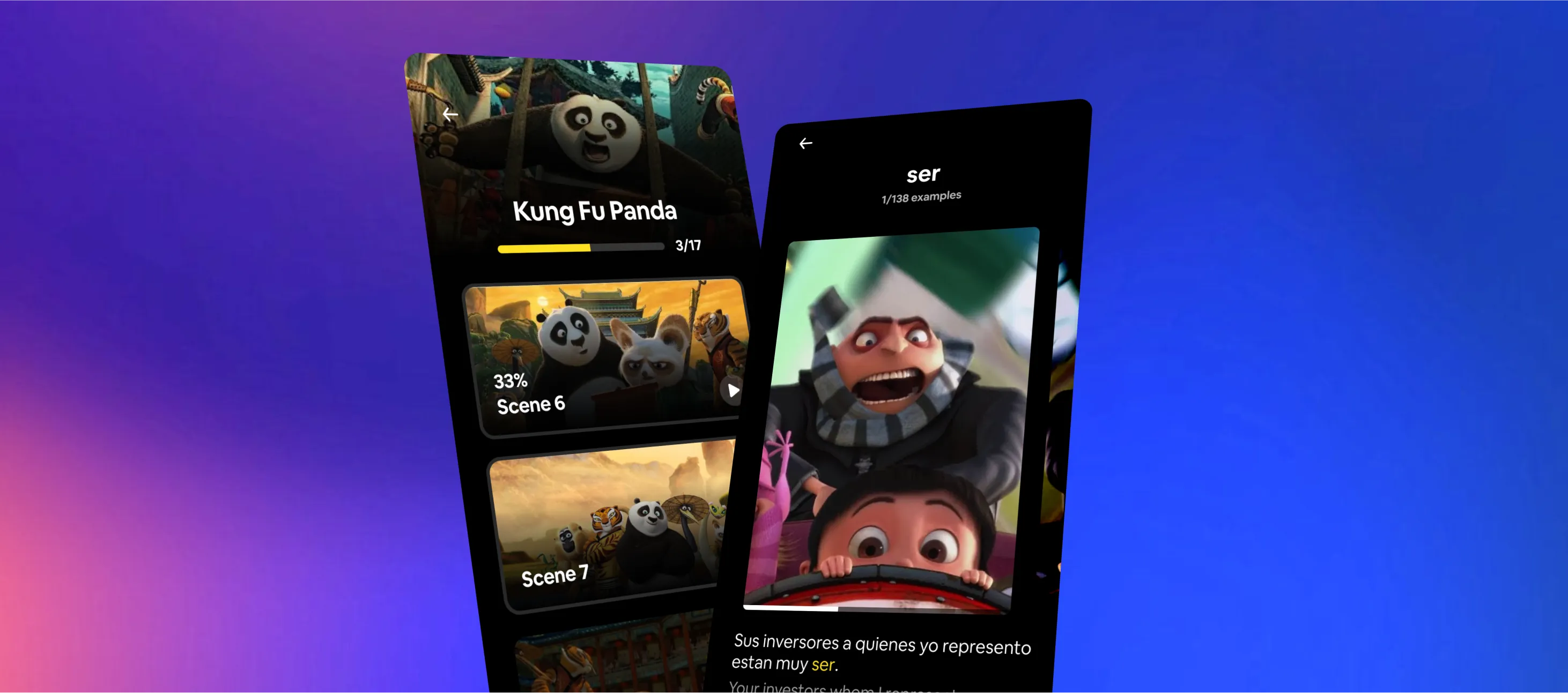
About
Watching your favourite movies in foreign language can help you acquire languages like we learnt our mother tongue listening to our parents and re-enacting them.
Impact
Achieved UX goals to build true language journey
Aim
Make language learning effective using movies, build user journey, learning journey design
My Role
Product Concept, UX Research, Prototyping, High-fidelity mocks & UI Development
Timeline
2020 - 2021
Defining Problems
How to provide true learning progress with watch movies?
#1 Watching a movie vs learning a language
Designing a language-learning app that incorporates movies presents unique challenges. Maintaining user engagement is crucial, requiring a balance between education and entertainment. Content must be carefully curated and segmented to facilitate learning, yet remain enjoyable. Lastly, considering the lengthy duration of films, creating a time-efficient learning experience is a significant hurdle.
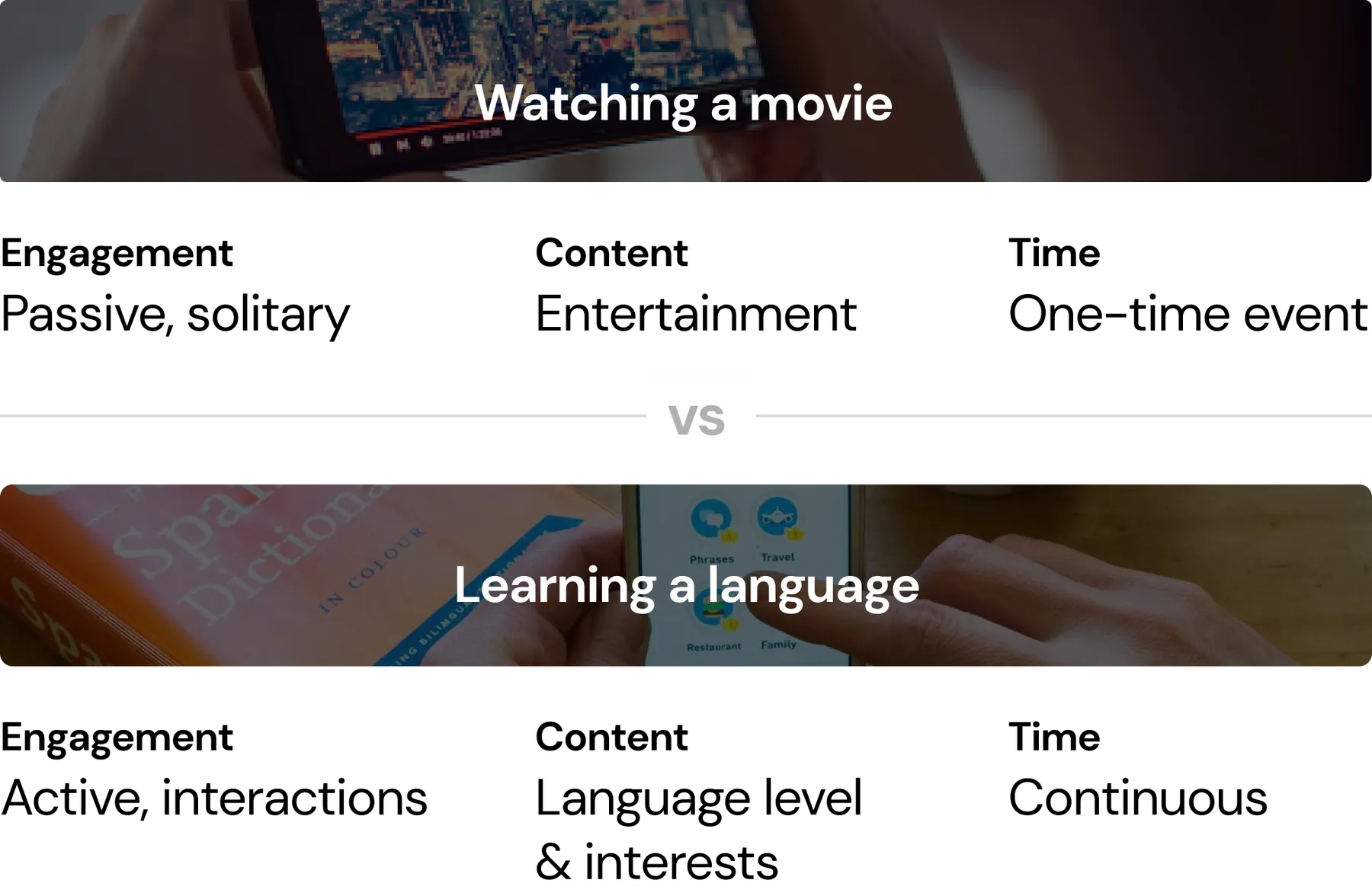
#2 Fake progress vs Real progress
Designing a language-learning app that accurately reflects true progress rather than giving a false sense of achievement is challenging. Traditional methods like Day Streaks and XP points used by Duolingo may not truly denote linguistic proficiency. The key issue lies in generating intrinsic motivation for users to engage, while ensuring the progress displayed genuinely mirrors their language acquisition journey.
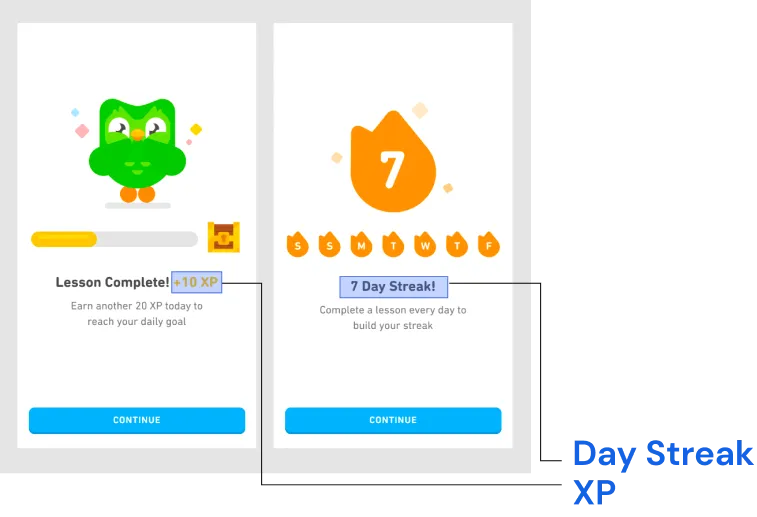
#3 Learner's journey vs Movie progression
Balancing the natural progression of a movie's storyline with a learner's journey is a significant challenge in designing a language-learning app. A movie's plot may advance at a pace or sequence that does not align with the learner's current language proficiency or learning curve. Hence, synchronizing the learner's journey with the movie progression, while ensuring effective language acquisition, presents a unique design problem.

Designing solutions
Goal-based Contextual learning and cultural immersion
Casual learners are typically beginners, seeking an entertaining and enjoyable approach to language learning. They are the ideal target audience as they are likely to be attracted to the fun, movie-based format of the app. This group can benefit greatly from actual progress markers, which will encourage their continued engagement and foster a deeper interest in language learning.
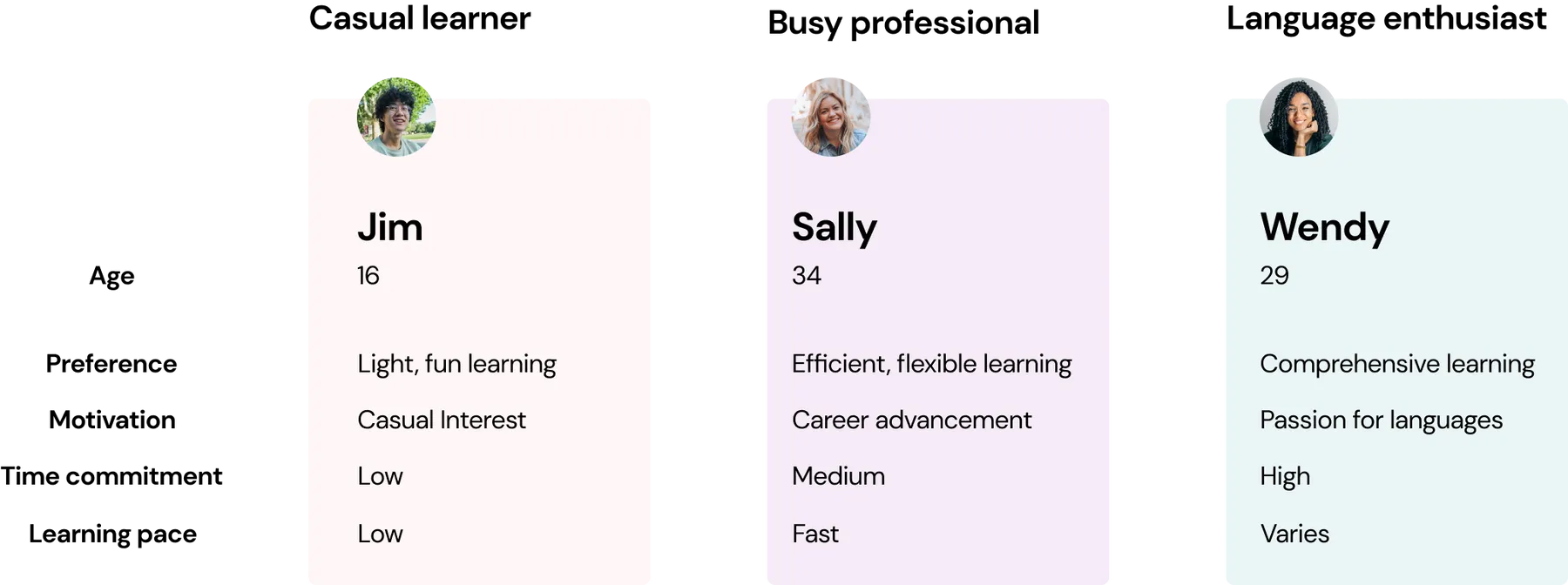
#1 Redesigning the In-scene experience from scratch
The solution involved a complete redesign of the in-scene experience. We introduced interactive features like tapping words to reveal meanings and providing various examples of word usage from different movies. This not only enhanced the learning experience but also linked it to the 'word journey', a feature that tracked the user's real progress in language learning.
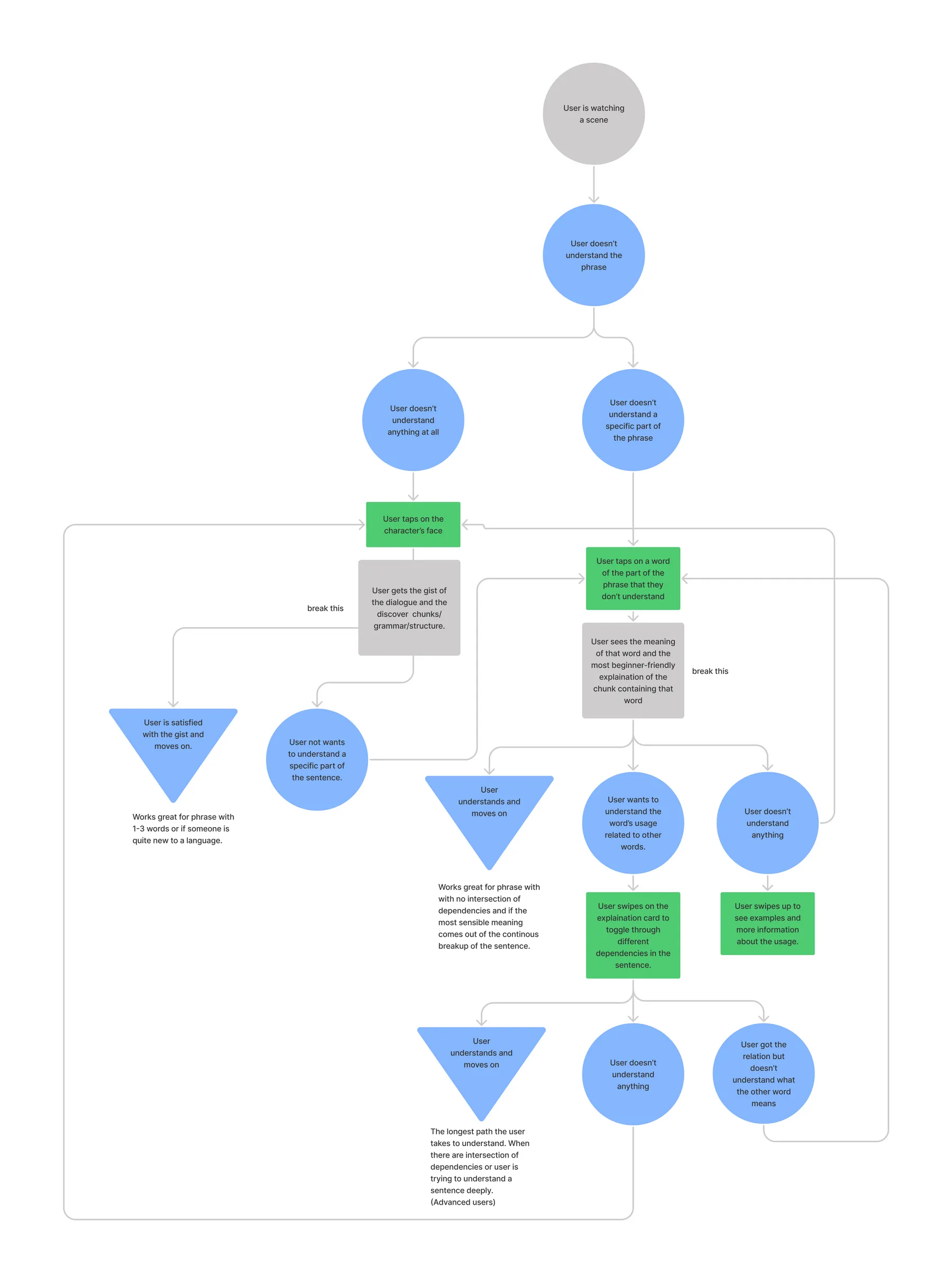
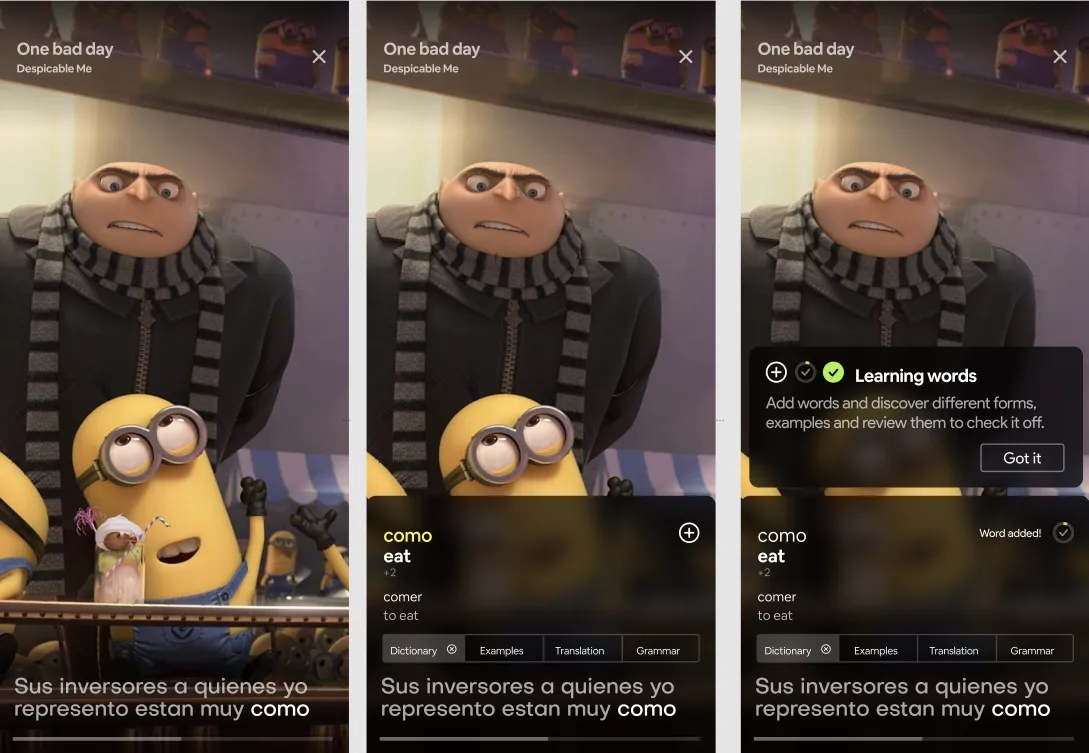
#2 Using words as a learning driver
We designed a solution that leverages the power of words as a primary driver for language learning. By tracking the number of views and clicks on different words, we can provide real-life examples of their usage within the context of movie scenes. Instead of relying on abstract metrics like day streaks or virtual currency, the app monitors the number of words learned by the user. It also recognizes various forms and measures the frequency of word usage in the language, thereby tracking and promoting genuine progress.
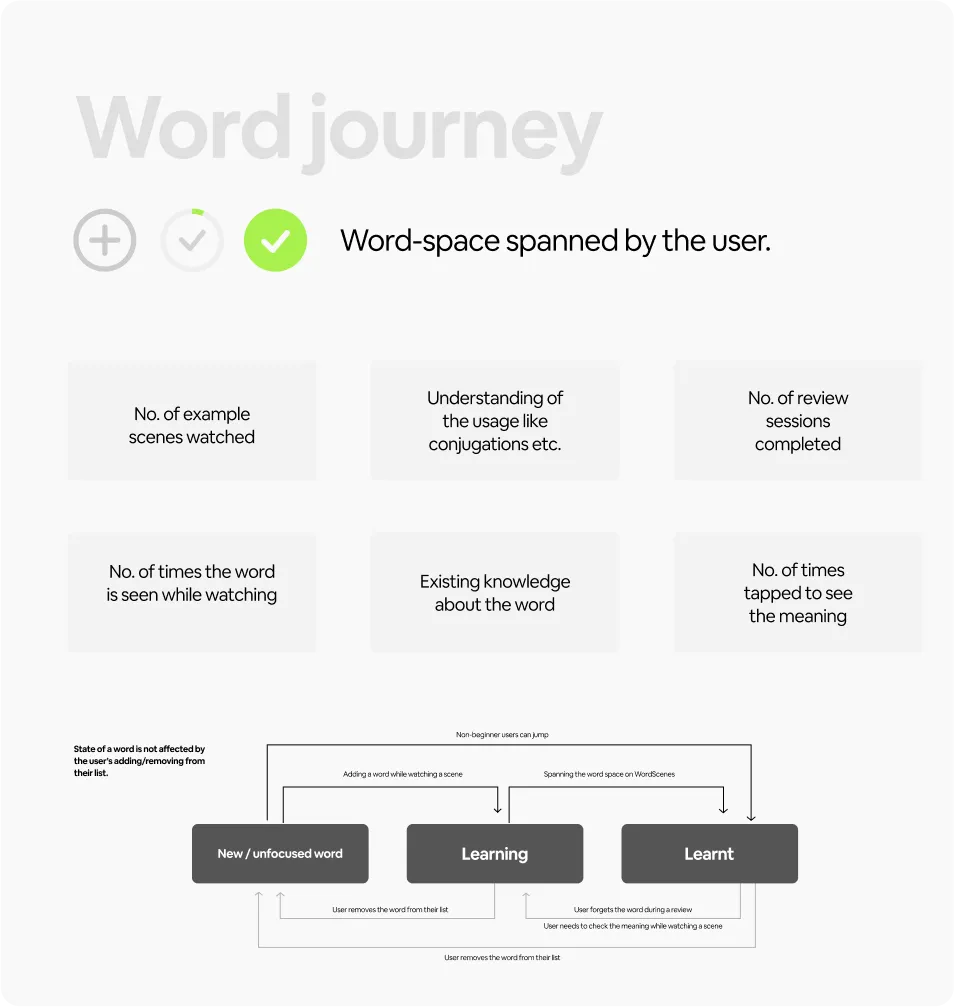
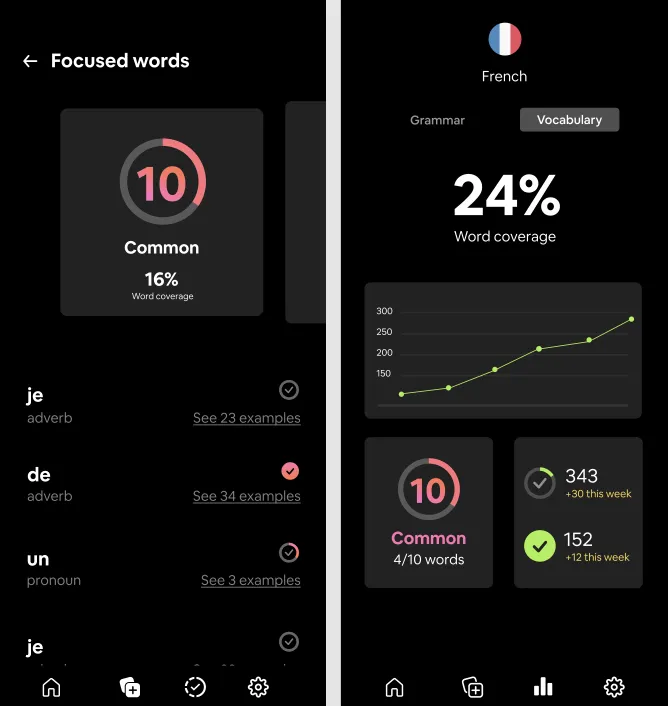
#3 Breaking movies into scenes to map the learner journey
To address the challenge of synchronizing the learner's journey with the movie progression, we divided movies into short scene clips. This allowed for active participation and better attention span from the users. The scenes were segmented based on the difficulty of dialogues, facilitating a natural language progression for the user that paralleled the movie's storyline. Additionally, we grouped similar categories together to enhance the unlocking experience for more advanced language exposure.
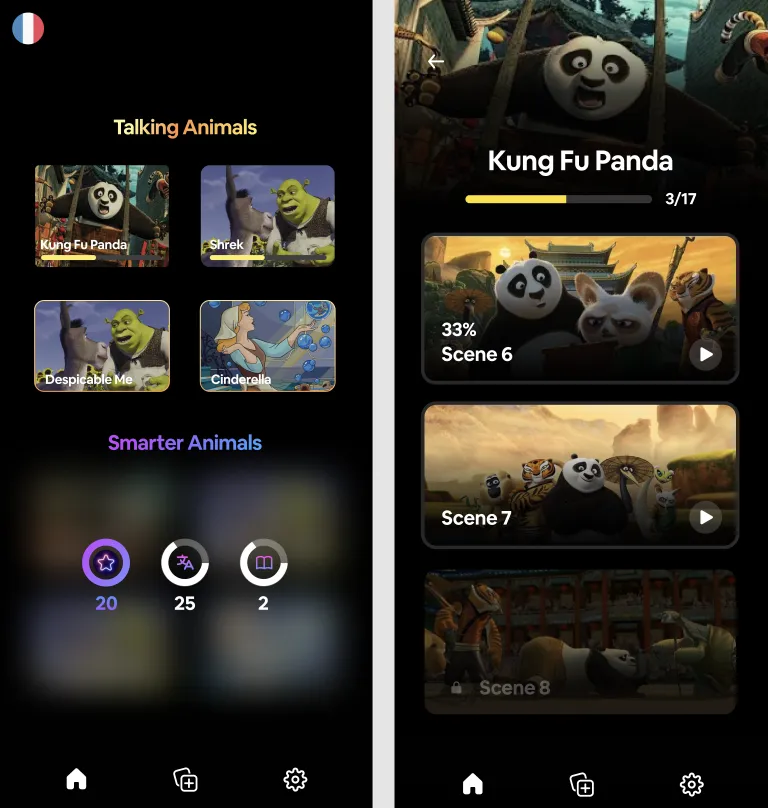
Results
Robust and True language learning path
The app's innovative approach to language learning through movies led to a robust and authentic learning path for users. By integrating interactive features and real progress tracking, user engagement and language retention were significantly enhanced. The tailored scene segmentation and contextual learning strategies resulted in a unique and effective educational experience.